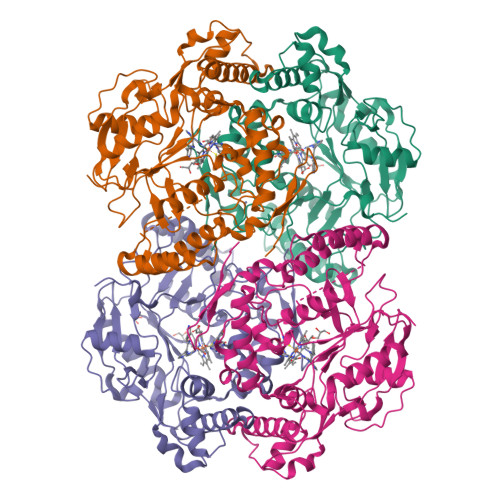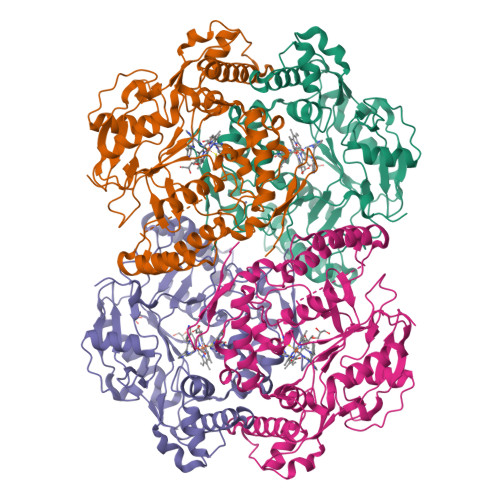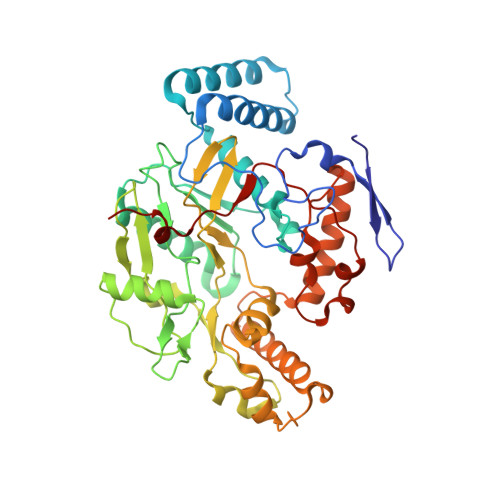Novel 2,4-Disubstituted Pyrimidines as Potent, Selective, and Cell-Permeable Inhibitors of Neuronal Nitric Oxide Synthase.
Mukherjee, P., Li, H., Sevrioukova, I., Chreifi, G., Martasek, P., Roman, L.J., Poulos, T.L., Silverman, R.B.(2015) J Med Chem 58: 1067
- PubMed: 25489882
- DOI: https://doi.org/10.1021/jm501719e
- Primary Citation of Related Structures:
4D2Y, 4D2Z, 4D30, 4D31, 4D32, 4D33, 4D34, 4D35, 4D36, 4D37, 4D38, 4D39, 4D3A, 4D3B, 4UCH, 4V3U, 4V3V, 4V3W, 4V3X, 4V3Y, 4V3Z - PubMed Abstract:
Selective inhibition of neuronal nitric oxide synthase (nNOS) is an important therapeutic approach to target neurodegenerative disorders. However, the majority of the nNOS inhibitors developed are arginine mimetics and, therefore, suffer from poor bioavailability. We designed a novel strategy to combine a more pharmacokinetically favorable 2-imidazolylpyrimidine head with promising structural components from previous inhibitors. In conjunction with extensive structure-activity studies, several highly potent and selective inhibitors of nNOS were discovered. X-ray crystallographic analysis reveals that these type II inhibitors utilize the same hydrophobic pocket to gain strong inhibitory potency (13), as well as high isoform selectivity. Interestingly, select compounds from this series (9) showed good permeability and low efflux in a Caco-2 assay, suggesting potential oral bioavailability, and exhibited minimal off-target binding to 50 central nervous system receptors. Furthermore, even with heme-coordinating groups in the molecule, modifying other pharmacophoric fragments minimized undesirable inhibition of cytochrome P450s from human liver microsomes.
Organizational Affiliation:
Department of Chemistry, Department of Molecular Biosciences, Chemistry of Life Processes Institute, Center for Molecular Innovation and Drug Discovery, Northwestern University , Evanston, Illinois 60208-3113, United States.























